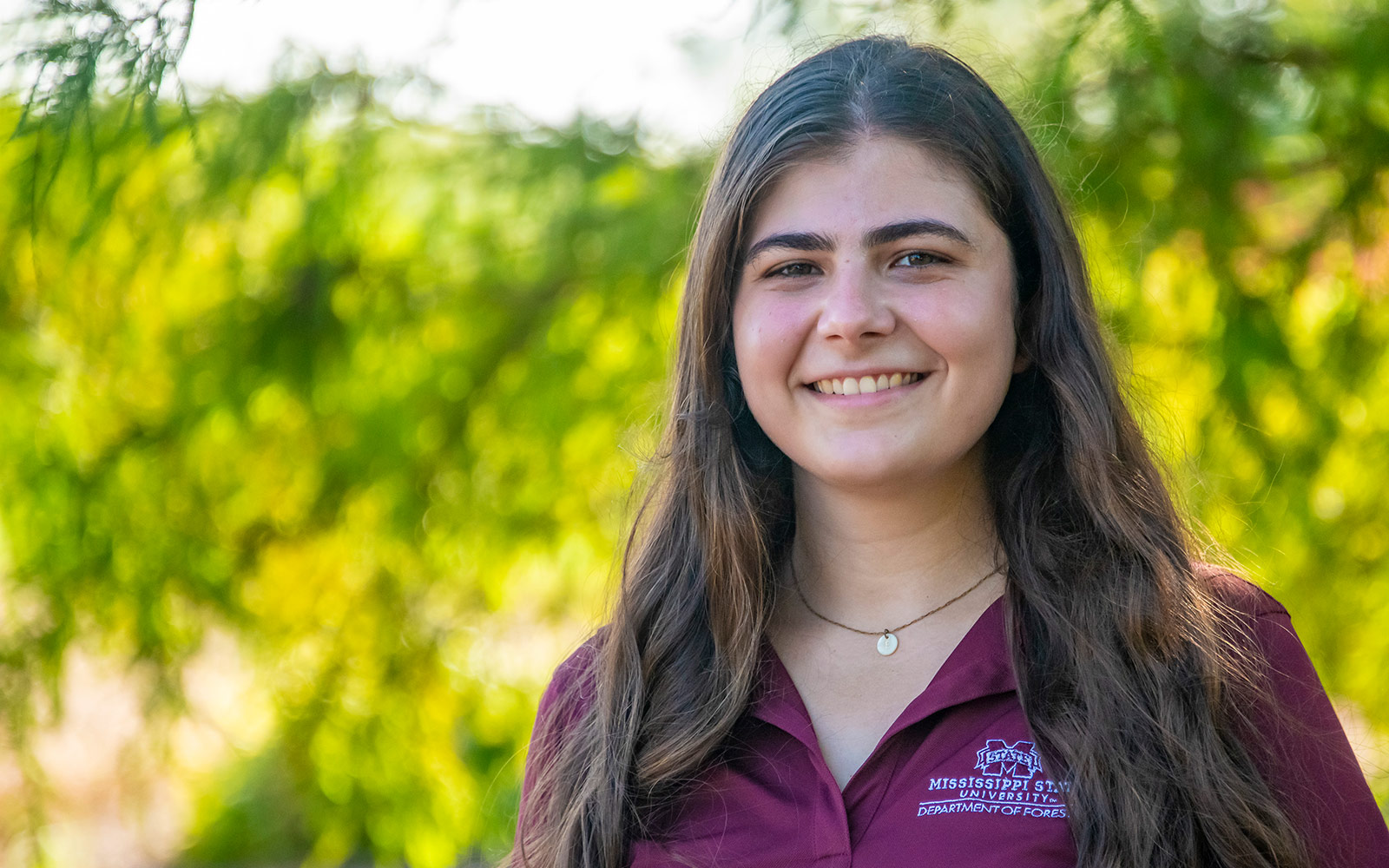Elizabeth Esser

Mississippi State doctoral student Elizabeth Esser is on a mission to protect the Magnolia State’s forests and farmlands from cogongrass, a problematic invasive species gaining a foothold throughout the Southeast.
Her passion for this project stems from personal experience.
“I grew up surrounded by forestland, and my family worked hard to be good stewards of it,” the Cedarburg, Wisconsin, native said.
When Esser was 8 years old, her county became the first in Wisconsin to report the presence of the emerald ash borer, which threatened her family’s acres of ash trees.
“The emerald ash borer impacting our land has been a constant throughout my life. It doesn’t kill trees instantly; it takes time,” she said. “I watched healthy trees become stressed, and on my most recent trip home, it looked like a tree graveyard. There were all these standing dead trees—no leaves, limbs or bark. It was sad to see this once-forested area becoming open land with nothing but grass and understory plants.”
Esser said the experience showed her the seriousness of invasive species.
“It made me want to study them and find ways to prevent that kind of devastation from happening to other species," she said.
Esser earned bachelor’s degrees in genetics and ecology from the University of Georgia before coming to MSU, where she began as a master's student and transitioned into her Ph.D. program.
“This project blends everything I love, from genetics and chemistry to ecology and real-world application,” she said. “We’re working to understand cogongrass at the genetic level and explore the potential for autotoxicity, where chemicals from the plant harm its own species. If we can harness that, we might develop a new way to manage it.”
Current control methods for cogongrass are limited and labor-intensive.
“It spreads easily, resists herbicides and fuels hotter fires that damage native ecosystems,” Esser said. “Once it takes over, it’s incredibly difficult to restore forests and wildlife habitat.”
Beyond the lab, Esser leads the MSU Forestry Graduate Student Association as president. She also served as service and outreach coordinator of the MSU Graduate Student Association and volunteers at the Oktibbeha County Humane Society and the Equine Therapy Program through MSU Extension.
“We have two annual camping trips, monthly dinners and movie nights to support each other and stay connected,” she said about the Graduate Student Association “I grew up riding and volunteering in equine therapy, and I’m happy I get to help children with disabilities ride now.”
Set to graduate in 2027, Esser hopes to stay in research, whether that’s through industry, government or academia. She credits MSU with opening doors she never expected.
“I’ve had incredible support—access to equipment across departments, funding for travel and mentors who’ve encouraged me every step of the way. I’ve presented in Maryland, Idaho and Quebec, and soon I’ll be heading to Indonesia for a forestry conference,” she said. “These opportunities have been amazing, and I’m excited for what’s next.”
